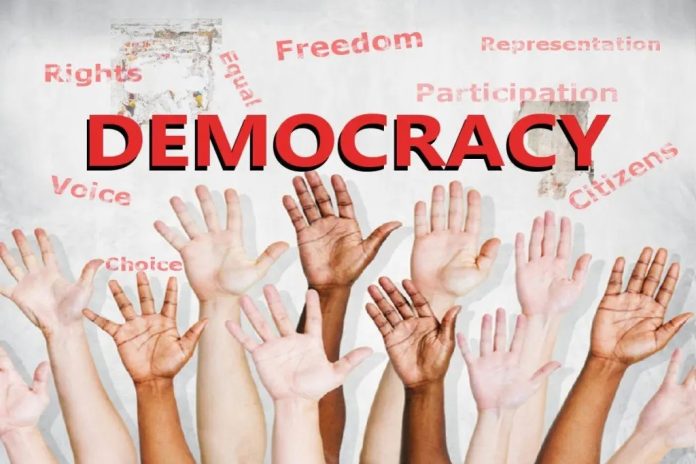- Democracies worldwide are often yearned for, accepted, upheld, and proudly proclaimed as the most humane form of governance, offering citizens opportunities to voice opinions without fear or prejudice. Freedom of expression, rule of the law, robust judicial delivery system, and socio-economic measures are some of the most common characteristic traits seen in the context of democratic governments. As you know, the exact opposite forms of governance without any freedom or independence to voice opinions are autocratic, aristocratic, authoritarian, dictatorial, monarchic, and anarchic. Thus, citizens of a democratic country must feel blessed since the commoners’ voices are provided with a platform to profess and expect answers in return.

PC: Outlook India
- As Indians, we are proud of our democratic credentials that have held such a vast country with vivid diversity together for almost 75 years now. Yes, democracies are characterized by organized chaos but that’s the beauty of the governance by the people, of the people, and for the people. Let’s also dwelve deep to comprehend how identity politics that has taken a deep root works across democracies. Note how two years ago, when Rishi Sunak’s party elected him Britain’s first Asian-origin PM, the buzz was whether the country had entered a post-race era. Today, when voters have crashed Conservatives to a historic low, is it on account of Rishi being brown? Across the pond, is Democrats’ reluctance to bump Kamala up the presidential ticket also racially rooted?
- Indeed, we ask similar questions of voting blocs in different democracies – how Blacks or Dalits or white suburban women are tilting. Of course, the questions are legitimate, reflecting how identity politics has deepened everywhere. But the answers are complicated because of brand of politics, say leftwing or rightwing, can host different kinds of identities. Mind you, Rishi is brown, but also richer than his king. The new incumbent Keir Starmer is white but was the first from his working-class family to go to university, and he uses a public healthcare facility to boot. Most of the Indian political leaders, including the PM, come from a very humble background. Make no mistake, class is as important a political identity marker as race or religion. No questions asked.

PC: Hindustan Times
- Further, there are innumerable examples of world leaders whose identity is derived from across the world and whose ancestral roots can be traced elsewhere. Commonsensically, we know the good of identity politics lies in its balance, when it helps the fight for representation and rights, not when it vitiates hatred or violence. Plus, identity is a matrix. Wearing one aspect on the sleeve is a strategic choice rather than the whole truth. Beyond the need to see both those elected or elected through multiple prisms, this means recognizing that human society is built on different group affinities. The wonder of democracy is how it keeps all these negotiating with each other. This is the beauty of democracy pervading political silos, especially class and creed.






